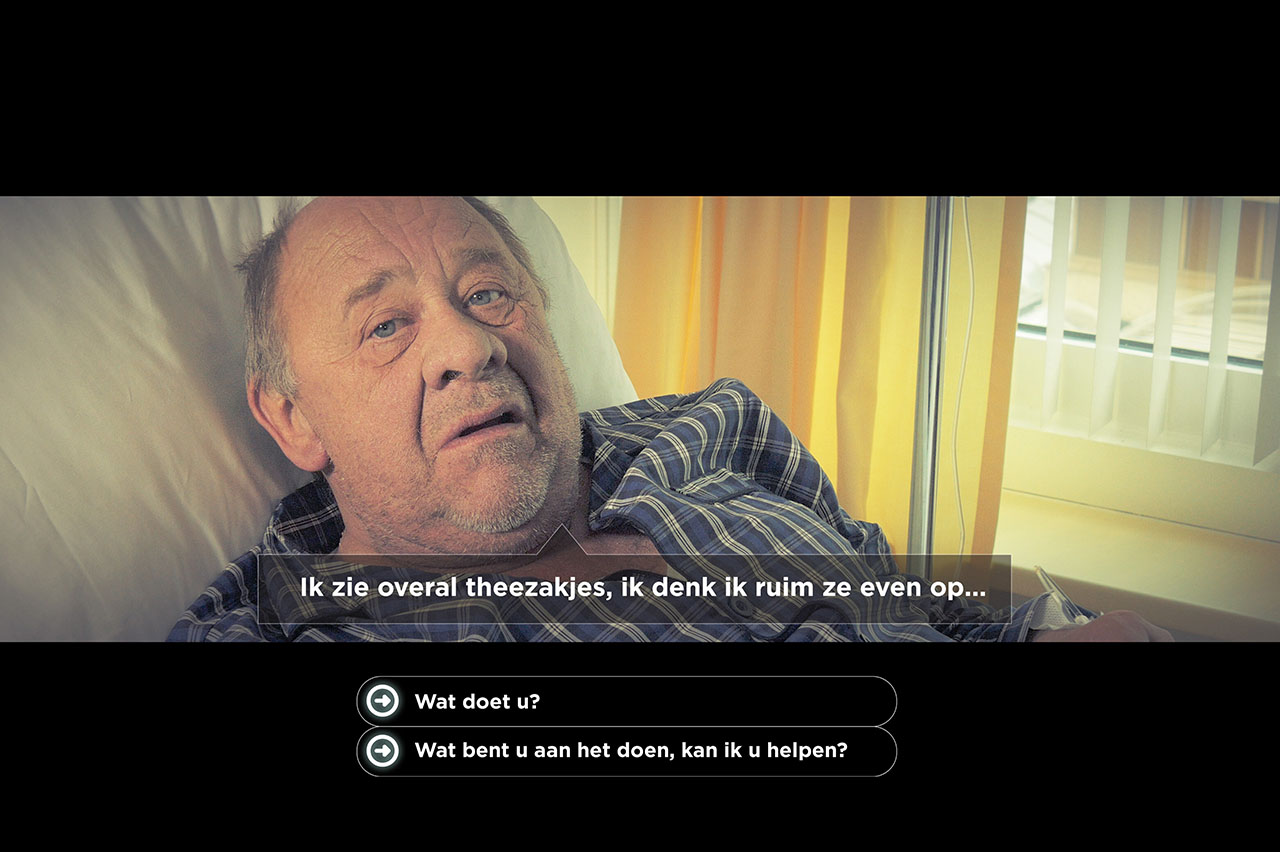Innovative game improves care skills of medical students
Every year, 100,000 patients in the Netherlands experience delirium, such as after surgery or infection. Due to unfamiliarity and lack of understanding, this condition is often not recognised and adequately treated in patients. Education is often focused on acquiring knowledge, but that isn't enough - medical students must learn to translate this knowledge into skills. The Delirium Experience has turned out to be highly effective for this, and the game also has a positive effect on the motivation of students and their involvement in caring for frail elderly people.

Delirium Experience is not about learning a set protocol but about learning to recognise and apply interventions that bring a patient back to the here and now. Students and caregivers learn to improvise, as every situation is different.